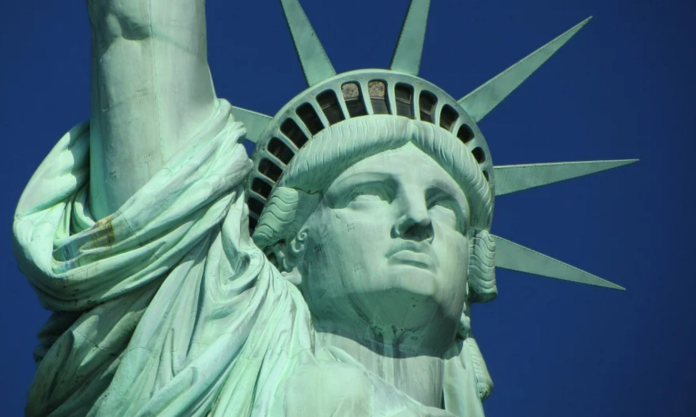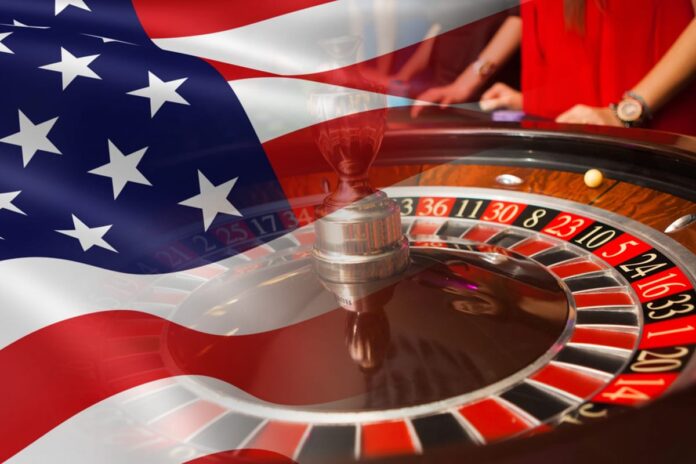
Gambling activities were quite popular among residents of the United States during the Wild West era. Back in the day, almost everyone engaged in some form of gambling activity. Different games of chance were brought to American soil by the British colonies.
At the time, there were no special restrictions or prohibitions on gambling activities but attitudes toward those activities varied from one community to another. Then, in the 1680s, horse racing betting was popularized in the state of Virginia among its upper class.
Around the same time, wealthy Virginian lawmakers and landowners constructed the very first gambling laws and regulations and even introduced the very first formal gambling laws. During the colonial era, almost four hundred lotteries are held in thirteen different colonies.
At the time, lotteries were not seen as gambling games but as a source of revenue for these thirteen colonies. Around the same time, New Orleans became the gambling capital. While numerous religious groups wanted the state’s lawmakers to outlaw gambling, gambling establishments rapidly grew in popularity until gambling was not legal anymore. New gambling laws and restrictions led to all gambling venues closing their doors.
As mentioned at the beginning, gambling activities were very popular during the settlement of the West. Major gambling hubs were active in Dodge City in Kansas and Deadwood in South Dakota. Denver and Kansas City were also famous for their gambling houses.
In the late nineteenth century, horse racing betting was popularized in the Northeast. Around the same time, the very first racetracks opened their doors. Fast forward to 1931, this is the year when the state of Nevada legalized different gambling activities to combat the impact of the Great Depression on its economy.
Online Gambling Laws and Regulations in the United States

In general, during the 1990 period, Americans got to know about internet gaming, which makes it easy for them to play at their residence. Later on, various types of online casinos, including poker, roulette, slots, craps, blackjack, and video poker, came into the light.
Interest in gambling activities in the state was rather slow but by the 1960s, Las Vegas became one of the major hubs for gambling in the country. In the 1950s, Southern Maryland also becomes a very popular destination for gamblers. Fast forward to 1977, the very first land-based casinos opened in Atlantic City.
In the early 1990s, Illinois and Louisiana legalized riverboat casinos. In 1996, gambling was legalized in Detroit. To curb the potential negative impact of the sports betting industry, the US Congress passed the PASPA (Professional and Amateur Sports Protection Act) in 1992.
In 2018, the United States Supreme Court proclaimed this act unconstitutional. As explained in detail at AmericaGambles, legally operating online casinos can be found in West Virginia, Virginia, Michigan, Delaware, New Jersey, Nevada, Connecticut, and Pennsylvania. Shortly after the US Supreme Court proclaimed the PASPA act unconstitutional Delaware, Nevada, and New Jersey legalized online casino gaming as well as online poker. Pennsylvania was also among the very first states to legalize online gambling activities and West Virginia followed. The state of Michigan jumped on the bandwagon in the early months of 2024.
New Jersey was the very first US state to legalize online gambling activities. Back in 2013, the state’s legislators passed Assembly Bill 2578 that allowed licensed online gambling sites to operate within the state’s borders.
Needless to say, welcoming gambling laws and regulations quickly attracted big brands such as Golden Nugget, Betway, and PokerStars. Online gambling activities are legal in the state of Michigan since December 2019. More specifically, the state’s legislators passed Bill 186 on the 20th of December. The very first online casinos became operational in Michigan in the early days of 2024.
The state of Pennsylvania is also home to a thriving iGaming industry. This report by the Pennsylvania Gaming Control Board revealed that the total online gaming revenue for the month of October reached over US$103,891. West Virginia legalized online gambling activities back in March of 2019 following the passing of the House Bill 2934. In Delaware, gambling activities have been legal since 2012.
Types Of Gambling Their Legality

There are different types of gambling in the United States, such as sports betting, online gambling, racetrack casinos, commercial gambling, lotteries, charitable, pari-mutuel, tribal, and many more. Out of them, charitable gambling type is mostly legal in several states of the US. Contrary to that, online gambling is considered the most illegal type of gambling in various states.
As per the information given by the Center for Gaming Research University Libraries in 2017, the total profit of legal gambling is about $158.54 billion. Here is a sneak peek of the separate revenues
- Lotteries account for $80.55 billion
- Commercial casinos contribute about $41.2 billion
- Tribal casinos have a $31.945 billion profit
- Charitable games and bingo includes $2.15 billion in revenue
- Card rooms provide $1.9 billion
- Pari-mutuel betting accounts for up to $295 million
- The legal bookmaking industry has a total of $248 million in revenue

Here are some brief data about the types of gambling and their legality in various states of the US:
- There are some states where almost every type of gambling is legal, those states include Indiana, Iowa, Michigan, Pennsylvania, Delaware, Illinois, and West Virginia.
- Hawaii and Utah are the two states where every type of gambling is illegal.
- Colorado, Florida, Maryland, New Jersey, New York, Puerto Rico, and Rhode Island, are some states where all types of gambling are legal, except one.
- Two different types of gambling types are illegal in states like Nevada, California, Massachusetts, New Hampshire, New Mexico, Ohio, United States Virgin Islands, and Washington.
- South Carolina and American Samoa are two American states which allow only one type of gambling.
In the USA, there are both federal and state laws regarding the legality of gambling. Because of that, every state has its own set of conditions about which type of gambling is legal in its borders, where people can gamble, and who are eligible for gambling legally. Almost many states have passed various laws referring to these issues.
Keep in mind that there are certain age restrictions for gambling, which means some states set a minimum age for players. If people below that age are involved in gambling, then they have to face legal consequences. In New Jersey, if you are 18 years old, you can purchase a lottery ticket or enter a horse race betting, but you are not eligible to participate in casino games until you turn 21 years.
Conclusion
It is clear that not all states in the United States of America legalize gambling activities, and gambling is legal in only a few states. In addition to that, some states have specific regulations and age restrictions related to gambling. Hence, we advise you to check out your state’s laws and regulations about gambling before participating in it.











